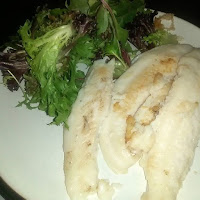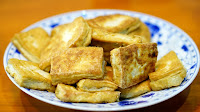Hello, People!
Today we'll be discussing whether supplements are really a necessity or they are just a luxury?
The answer to this question is very vague! There are a lot of supplements that are a luxury but there are some supplements that can be a necessity. It all depends on what your requirement is? See. I will be very clear about everything. You can totally do without the use of any supplements. You can get protein from a lot of natural food available to us, you can get all the minerals and vitamins from natural foods too!
Trust me, guys! I have used a variety of supplements and supplements do not work if your diet is not on point. I have seen a lot of people complaining about their whey protein not working or this brand is better or that brand is better. NO! The answer is that you can literally use any brand of whey protein, multivitamins or fish oils (just that they need to be authenticated and original) AND you will get results if your diet is on point.
The thing supplements do is, it just gives you an upper edge in terms of recovery and performance. Example - If you are consuming 100 grams of protein through natural foods like eggs, chicken, soy, tofu, milk etc and then you also take 2 scoops of 25gm protein content whey protein supplement, your total protein intake will be around 150gm which will definitely give you a boost because sometimes it becomes difficult for us to consume a lot of protein through natural foods as it is time-consuming and we are always in a very busy schedule in today's time.
But if you are just totally depending on a whey protein supplement for your daily protein requirement I will say you will get very nominal results because supplements can never replace natural foods they can just enhance your performance and recovery if used with natural food.
So my equation about supplements is that they work the best when combined with natural food rather than used as a stand alone option. If you would ever ask me to choose between natural food and supplements, I will definitely opt for natural food.
So, Supplements are useful but when combined with natural food or I feel, they are completely useless if you are going to be using them as a stand alone option.
You can use a simple equation. Let your 70% nutrition requirement be fulfilled with the natural food and the other 30% with supplements and you will see results in no time Or if time is not a constraint definitely try to get all your nutritional requirement from natural food.
Thank You So Much!
Please Follow The Blog For More Posts On Nutrition, Exercise Routines, How To's, Supplement Reviews, Various Diets For Fat Loss/Muscle Gain.
Also, Comment Below If You Want An Article On A Particular Topic!
Adios!
Stay Fit! Stay Healthy India!































